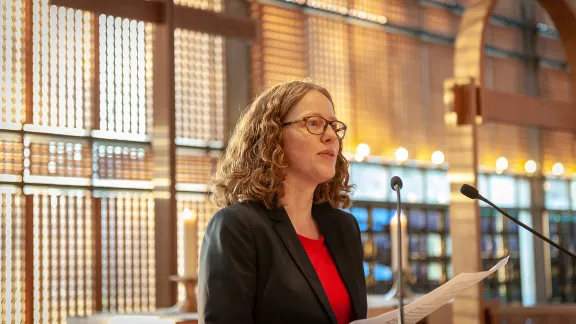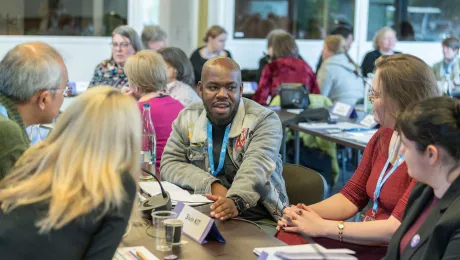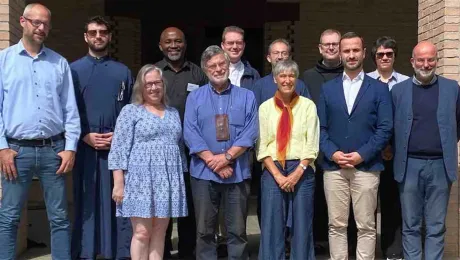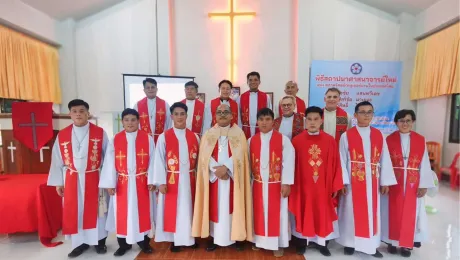
Rev. Dr Miriam Haar, LWFâs Theological Assistant. Photo: LWF/S. Gallay
A new LWF publication spells out six ecumenical commitments in relations with other churches
(LWI) - It is Christian unity week again from January 18-25, but this year marks a special reason for celebrating the progress in relations between Christians of different denominations.
2019 is the 20th anniversary of a key agreement known as the JDDJ, or the Joint Declaration on the Doctrine of Justification. Originally signed by The Lutheran World Federation (LWF) and the Roman Catholic Church on Reformation Day 1999, the text has since been endorsed by three other Christian World Communions, namely Methodists, Anglicans and the Reformed.
By effectively resolving the 500-year-old conflict over the nature of Christian salvation, the document paved the way for the 2016 Joint Catholic-Lutheran Commemoration of the Reformation led by LWF General Secretary Rev. Dr Martin Junge and former President Bishop Dr Munib A. Younan, together with Pope Francis, in the Swedish cities of Lund and Malmö.
Ahead of the 20th anniversary celebrations of the JDDJ later this year, the LWF is launching a new publication, reaffirming its ecumenical commitments in light of these latest developments. These commitments were formally adopted by the LWF Council in 2018, putting into practice the Lutheran communion’s pledge to be more accountable to its ecumenical partners.
Entitled ‘The Lutheran World Federation’s Commitments on the Ecumenical Way to Ecclesial Communion’, the publication was launched at a prayer service in the Geneva Ecumenical Center Chapel on 16 January. The user-friendly booklet summarises recent progress and lists six ways in which Lutherans pledge their commitment to the search for full and visible unity of all Christians.
Rev. Dr Kaisamari Hintikka tells us more about the origin and goals of this new publication. Recently appointed as bishop in her native Finland, she’s the LWF’s outgoing Assistant General Secretary for Ecumenical Relations and head of its Department for Theology and Public Witness.
With the Catholics we’ve been in ongoing, continuous, theological discussions for more than 50 years, so it’s about time to look at what it means in the life of our local communities.
Here to give us some more practical details about the new document is Rev. Dr Miriam Haar, LWF’s Theological Assistant.
We did a survey among member churches about their ecumenical relations, their challenges, progress made, and asked ‘what do you want the LWF to do?’


